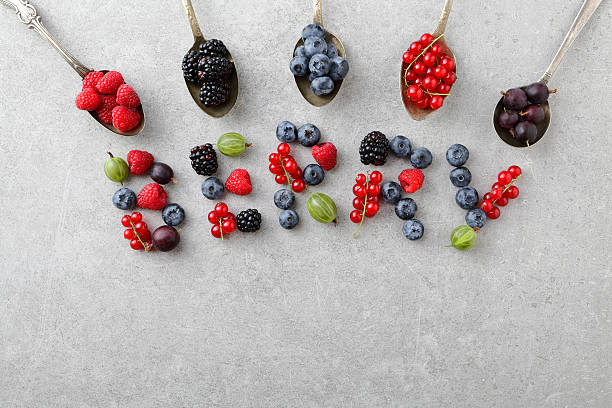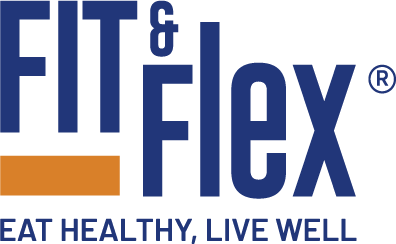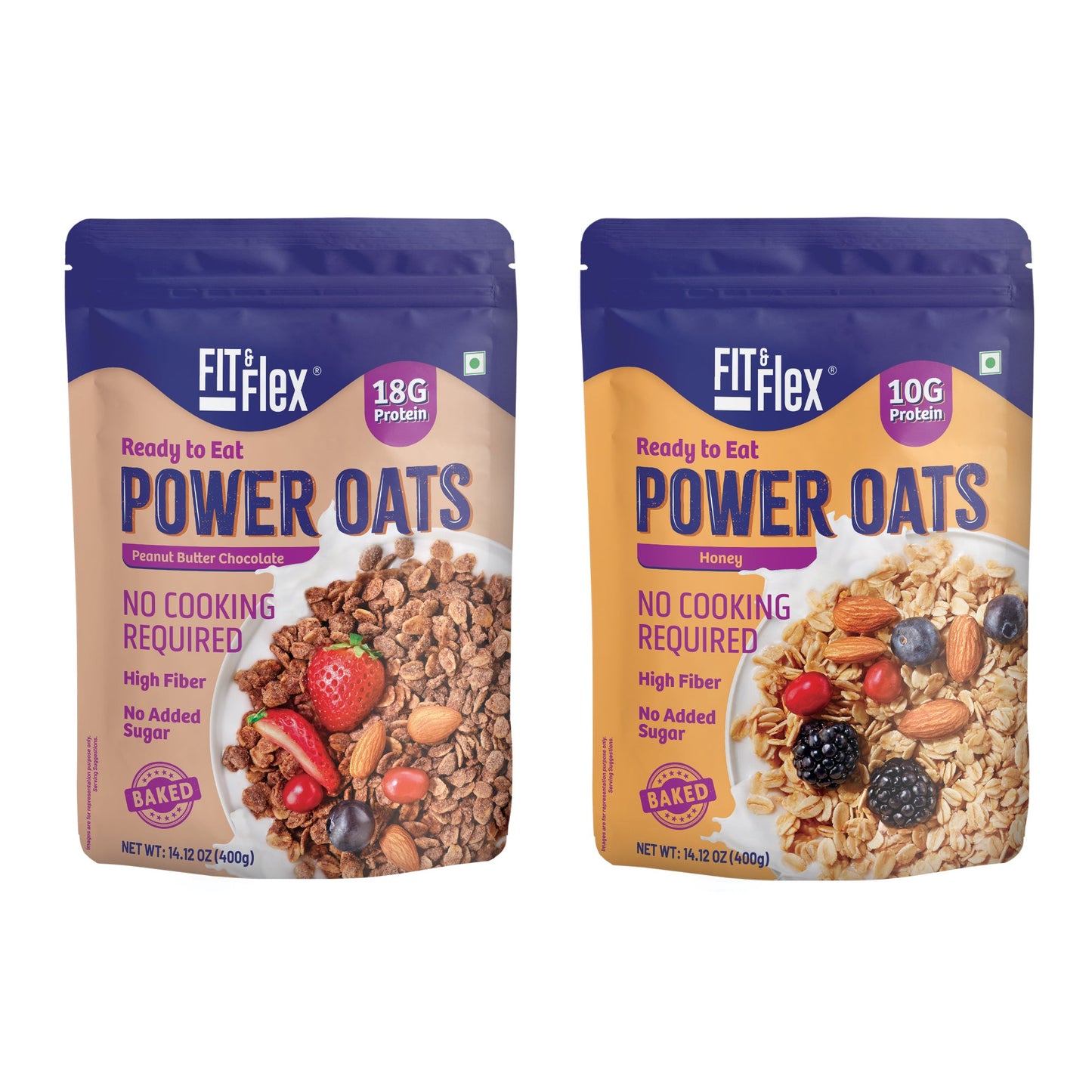Types Of Berries You Should Include In Your Diet

Granola’s burst of flavor and satisfying crunch combine delectably with yogurt’s smooth, creamy texture. While there is no official yogurt and granola diet, eating the two together or separately while dieting is a wise choice. Both provide different nutrients, and lower-calorie versions of each are available.
So go ahead and pick up some blueberries, strawberries, raspberries, and blackberries and start munching. Here, you will learn the several possible benefits of berries.
Different Types of Berries & Their Health Benefits
Berries are a special treat to pick or eat. Consider rich red strawberries, juicy blueberries, and tangy cranberries. They’re both delicious and beautiful. You should also include berries in your diet because they are high in vitamins, minerals, and fiber, as well as antioxidants that can protect your cells from free radical damage. They’re also low in calories.
Let’s look at what each of these berries has to offer in terms of health benefits.
1. Strawberry
Bring on antioxidants, polyphenols, and anti-inflammatory properties. Strawberries may help prevent cognitive decline due to their high concentration of flavonoids (natural compounds found in plants that protect the body from everyday toxins). Strawberry tops may help with gastrointestinal discomfort and joint pain. Therefore, you can eat more than just the berry. Infuse strawberry leaves in water or vinegar, toss them in a smoothie, or steep them in boiled water to make tea.
Nutritional Value of Strawberries (100 grams):
- Sodium – 0% daily value
- Potassium – 4% daily value
- Protein – 1% daily value
- Vitamin C – 97% daily value
- Iron – 2% daily value
- Magnesium – 3% daily value
- Dietary Fiber – 8% daily value
- Carbs – 2% daily value
2. Raspberry
Raspberries not only have 8 grams of fiber per serving, but they are also high in antioxidants and anti-inflammatory phytonutrients. According to research, they can aid in the management of type 2 diabetes and obesity. Their leaves are also rich in healing properties that have been used for centuries to alleviate pregnancy side effects such as nausea and vomiting. The benefits of red raspberry leaf tea include – the ability to strengthen the uterus, shorten labor, reduce complications, and prevent postpartum bleeding.
Nutritional Value of Raspberries (100 grams):
- Sodium – 0% daily value
- Potassium – 4% daily value
- Protein – 2% daily value
- Vitamin C – 43% daily value
- Iron – 3% daily value
- Magnesium – 5% daily value
- Vitamin B6 – 5% daily value
- Dietary Fiber – 28% daily value
- Carbs – 4% daily value
3. Blueberry
Blueberries are high in potassium, folate, fiber, and vitamin C, all of which are beneficial to the heart. Blueberries, like strawberries, are high in memory-boosting antioxidants and anti-inflammatory compounds. Because of their high flavonoid levels, they may also delay cognitive aging, according to research.
Nutritional Value of Blueberries (100 grams):
- Sodium – 0% daily value
- Potassium – 2% daily value
- Protein – 1% daily value
- Vitamin C – 16% daily value
- Iron – 1% daily value
- Magnesium – 1% daily value
- Vitamin B6 – 5% daily value
- Dietary Fiber – 9% daily value
- Carbs – 4% daily value
4. Blackberry
One cup of blackberries contains about 2 grams of protein and 8 grams of fiber. Each serving also provides half of your daily vitamin C needs, as well as antioxidants and brain-boosting polyphenols.
Nutritional Value of Blackberries (100 grams):
- Sodium – 0% daily value
- Potassium – 4% daily value
- Protein – 2% daily value
- Vitamin C – 35% daily value
- Iron – 3% daily value
- Magnesium – 5% daily value
- Dietary Fiber – 20% daily value
- Carbs – 3% daily value
5. Cranberry
Cranberries have anti-inflammatory properties and are high in antioxidants. Raw cranberries improve the health of the urinary tract, digestive system, and immune system when consumed regularly. They may also lower your risk of cancer, ulcers, and degenerative diseases caused by cell damage.
Nutritional Value of Dried Cranberries (100 grams):
- Sodium – 0% daily value
- Potassium – 1% daily value
- Protein – 0% daily value
- Vitamin C – 0% daily value
- Iron – 2% daily value
- Magnesium – 1% daily value
- Vitamin B6 – 0% daily value
- Dietary Fiber – 24% daily value
- Carbs – 27% daily value
6. Goji Berry
Goji berries, which originated in Asia, have been used in traditional Chinese, Korean, Vietnamese, and Japanese medicine since at least the third century. Because they contain 19 amino acids, they get most commonly used as a healthy food. Goji berries are also high in iron, zinc, calcium, and antioxidants.
Nutritional Value of Goji Berries (100 grams):
- Protein – 13% daily value
- Dietary Fiber – 16% daily value
- Carbs – 46% daily value
7. Black Mulberry
Black mulberries, like blackberries, are excellent for pies and jams. They are high in antioxidants and polyphenols – which may aid in the maintenance of good cholesterol, cardiovascular health, and obesity prevention. Mulberries can also assist in reducing your risk of cancer by reducing oxidative damage in cells and tissues.
Nutritional Value of Black Mulberries (100 grams):
- Protein – 1.3% daily value
- Dietary Fiber – 1.7% daily value
- Carbs – 9.8% daily value
8. Black Currant
These are well-known for improving kidney function, eye health, and immunity. Black currants are also higher in anthocyanins than red currants. Anthocyanins are a type of flavonoid linked to lower blood pressure, diabetes prevention, improved vision, cancer cell growth reduction, and other benefits.
Nutritional Value of Black Currants (100 grams):
- Sodium – 2.2 mg
- Potassium – 361 mg
- Protein – 1.6 g
- Vitamin C – 46 mg
- Iron – 1.7 mg
9. Gooseberry
Oh, the fiber, vitamins, and antioxidants! Although these are some of the sourest berries accessible, their anti-inflammatory phytonutrient characteristics make them beneficial. Gooseberries also have a high concentration of chlorogenic acid. It can help regulate blood sugar levels, as well as copper, manganese, and potassium. The greater the anthocyanin content, the darker the gooseberry.
Nutritional Value of Gooseberries (100 grams):
- Sodium – 0% daily value
- Potassium – 4% daily value
- Protein – 1.5% daily value
- Vitamin C – 46% daily value
- Iron – 4% daily value
- Magnesium – 2.5% daily value
- Copper – 8% daily value
- Dietary Fiber – 11% daily value
- Carbs – 8% daily value
10. Acai Berry
Acai is ideal for boosting energy and keeping you full due to its high protein and fiber content. (There’s a good chance you’ve tried a trendy açai bowl or smoothie, or even açai powder.) It’s also been linked to better blood circulation and the prevention of blood clots, as it’s thought to act as a natural blood thinner that relaxes blood vessels. The Brazilian superfruit is also high in antioxidants (three times more than blueberries) and may help improve brain function and cholesterol levels.
Nutritional Value of Acai Berries (100 grams):
- Sodium – 7 mg
- Protein – 2 g
- Fiber – 3 g
11. Red Mulberry
Red mulberries, like black mulberries, have the appearance of long raspberries. Their high fiber content may help you maintain a healthy cholesterol level and digestive system. Their high iron and vitamin C content may benefit skin health, lower your risk of heart disease, and lower blood pressure. Mulberry leaf tea may also help lower blood sugar and reduce inflammation.
Nutritional Value of Red Mulberry (100 grams):
- Protein – 1.4 g
- Fiber – 1.7 g
- Carbs – 9.8 g
12. Chokeberry
Chokeberries are among the most bitter fruits available, owing to their high tannin content. They’ll leave your mouth feeling dry, just like a glass of tannic red wine. They become less bitter when cooked or baked. Chokeberries are one of the best foods for cardiovascular health, according to some studies. Their antioxidants significantly curb swelling, blood pressure, and cholesterol.
Nutritional Value of Chokeberries (100 grams):
- Sodium – 0.07% daily value
- Potassium – 3.45% daily value
- Protein – 2.8% daily value
- Vitamin C – 23.33% daily value
- Iron – 7.75% daily value
- Magnesium – 4.76% daily value
- Vitamin B9 – 6.25% daily value
- Dietary Fiber – 13.95% daily value
- Carbs – 7.38% daily value
13. Bilberry
Bilberries resemble blueberries in appearance but have less sugar and thus a bitterer flavor. They are high in fiber, vitamins A, B, C, and antioxidants, and iron. They also lower cholesterol and protect you against many illnesses like cardiovascular disease, varicose veins, glaucoma, and muscular degeneration.
Nutritional Value of Bilberries (100 grams):
- Sodium – 10 mg
- Protein – 0.4 g
- Carbs – 8.7 g
14. Chokecherry
Chokecherries are different than chokeberries. They contain high amounts of disease-fighting antioxidants and flavonoids and quinic acid. It is known to help prevent urinary tract infections. According to research, quinic acid associates itself with improved circulation and blood vessel function. Initially, people used chokecherry tea to treat ailments, tuberculosis, and diarrhea, and they would consume the berries raw to aid in digestion.
Nutritional Value of Chokecherries (100 grams):
- Sodium – 0.07% daily value
- Potassium – 8% daily value
- Protein – 5% daily value
- Vitamin C – 1% daily value
- Iron – 2% daily value
- Magnesium – 5% daily value
- Vitamin B6 – 10% daily value
- Dietary Fiber – 68% daily value
- Carbs – 11% daily value
15. Red Currant
Nutritional Value of Red Currants (112 grams):
- Sodium – 0.07% daily value
- Potassium – 7% daily value
- Protein – 3% daily value
- Vitamin D – 0% daily value
- Iron – 6% daily value
- Dietary Fiber – 17% daily value
- Carbs – 5% daily value
Red currants are high in antioxidants, flavonoids, and vitamin B, which protect the body tissue and aids in the prevention of diabetes and apoplexy. Red currants, like black currants, benefit the immune and respiratory systems and are high in fiber.
Summary
The good news is that berries are delicious, and you can eat them in several ways. Add fresh berries to your yogurt in the morning, dried berries to your mid-day snack, and frozen berries to a smoothie or on top of vanilla bean ice cream for dessert. Do it however you want to incorporate berries into your diet. The advantages are sure to astound you.
Berries are among the healthiest foods available. They are high in fiber, vitamin C, and antioxidants while being low in calories. Many berries have links to improved cardiovascular health. These include lowering blood pressure and cholesterol as well as decreasing oxidative stress. They may also help reduce the risk of type 2 diabetes and are excellent substitutes for sugary snacks. Consume a few servings of berries per week and experiment with different varieties. Toss them into salads or use them as a nutritious breakfast topping.
If you’re thinking of a healthy and nutritious breakfast or snack option that contains different berries, Fit & Flex Granola is your perfect fit. It gives you your daily vitamin dose and packs the goodness of fiber-rich oats, nuts and seeds, and fruits. Completely baked, you can enjoy the healthfulness of Fit & Flex Granola as is or have it with milk, yogurt, or turn it into homemade granola bars. However you choose to eat granola, you are in for a breakfast treat or a tasty snack. To shop for Fit & Flex Granola, you can do it right here order granola online.




